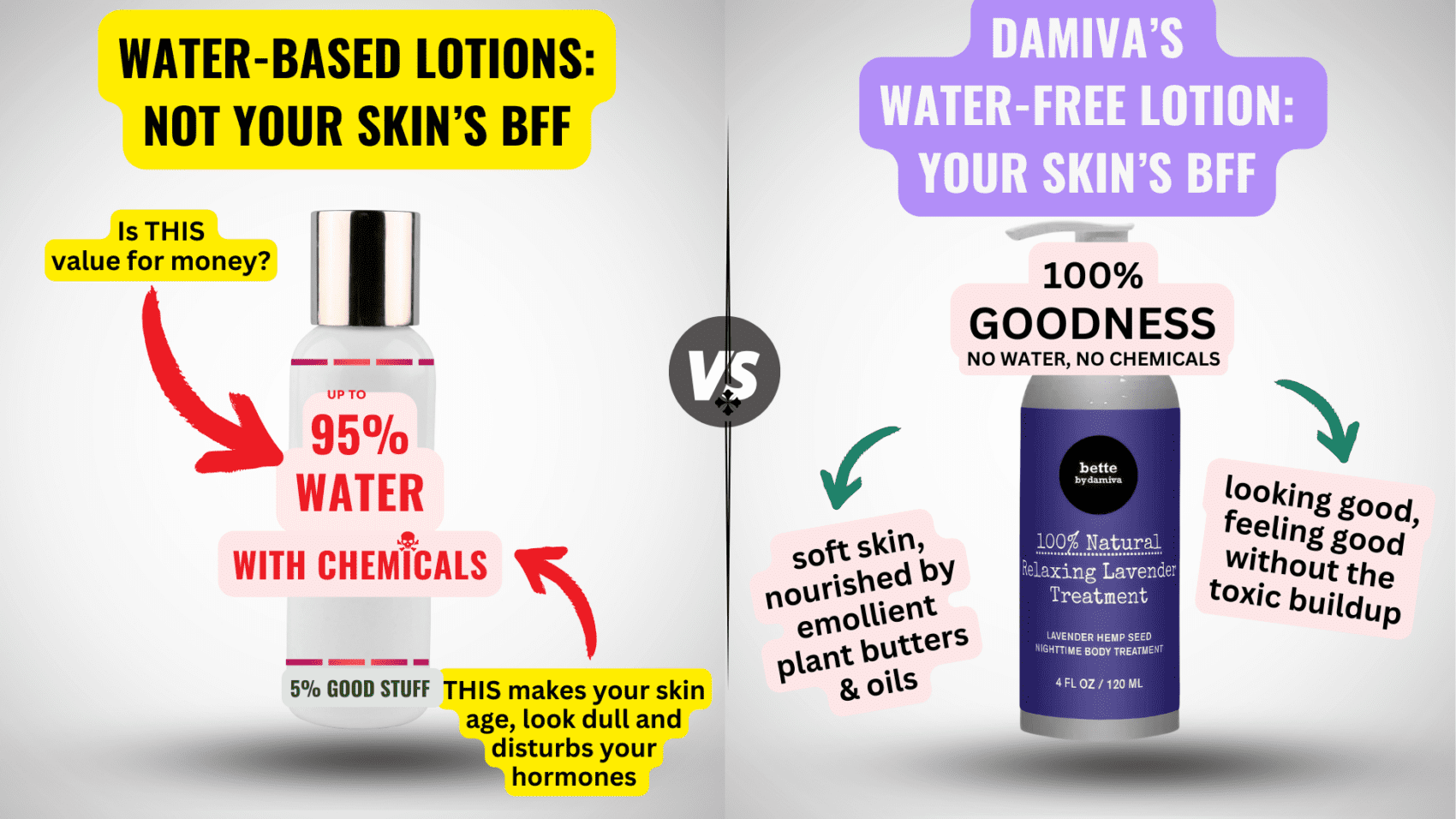Menopause and Its Effects on Sexuality
Menopause marks a significant transition in a woman’s life, typically occurring between the ages of 45 and 55, with an average onset around 51 to 52 years in Australia. It is defined as the cessation of menstrual periods, signifying the end of a woman’s reproductive years. This natural biological process is characterized by a decline in reproductive hormones, particularly estrogen, as the ovaries cease to release eggs. The drop in hormone levels can have widespread effects on the body, influencing bone density, cardiovascular health, and notably, sexual function.
Physical Changes During Menopause Affecting Sex Life
The physical changes associated with menopause can directly impact a woman’s sex life. Lower estrogen levels lead to thinning and drying of the vaginal walls, which can cause discomfort, irritation, and pain during intercourse. Additionally, changes in bladder tissues and pelvic floor muscles may contribute to incontinence issues, further diminishing sexual desire. These physiological alterations can make achieving orgasm more challenging and reduce the overall pleasure experienced during sexual activity.
Emotional and Psychological Changes
Menopause can also usher in emotional and psychological changes that affect sexuality. Fluctuations in mood, increased stress, and anxiety about body image can all influence sexual desire. Societal attitudes that seldom portray older women as sexual beings can exacerbate feelings of undesirability. Life events such as relationship issues, bereavement, or caring for aging parents can also take a toll on libido. However, it’s important to note that some women report an improved sex drive post-menopause, often attributed to reduced pregnancy anxiety and fewer child-rearing responsibilities.
Statistics on Sexual Activity Post-Menopause
Research indicates that sexual activity does not cease with menopause. While more than a third of perimenopausal and postmenopausal women report sexual difficulties, many continue to enjoy an active sex life. It’s reported that half of women in their 50s engage in intercourse, though this number declines to 27 percent by their 70s. This decrease is not necessarily indicative of dissatisfaction; many couples find new, fulfilling ways to express intimacy that do not involve intercourse. The key to maintaining a healthy sex life post-menopause lies in adapting to bodily changes, open communication with partners, and seeking medical advice when necessary.
Addressing the Myths Surrounding Menopause and Sex
Debunking Common Misconceptions
Menopause is often shrouded in myths, particularly regarding sexuality. One pervasive myth is that menopause signals the end of a woman’s sex life. This is simply not true. While hormonal changes can affect sexual function, they do not necessitate the loss of sexual pleasure or desire. It’s important to understand that menopause is a natural phase of life, not a disease, and it does not spell the demise of intimacy.
The Reality of Sexuality in Later Life
The reality is that many women continue to enjoy a fulfilling sex life during and after menopause. In fact, some may find greater pleasure in sex as the fear of pregnancy is no longer a concern. However, it’s crucial to acknowledge and address the physical changes that can occur, such as vaginal dryness and discomfort. These can be managed with treatments like hormone replacement therapies, over-the-counter lubricants, or vaginal moisturizers. Additionally, maintaining open communication with partners and healthcare providers can lead to solutions that enhance sexual well-being.
Cultural and Social Influences on Perceptions
Cultural and social narratives often reinforce negative perceptions about menopause and sex. These narratives can shape a woman’s expectations and experiences of her sexuality during this time. It’s essential to challenge these societal norms and recognize that sexuality does not diminish with age. By fostering a more positive and open dialogue about menopause, women can feel empowered to seek information and support, leading to a healthier and more satisfying sex life.
In conclusion, while menopause can bring about changes in sexual function, it does not have to negatively impact one’s sex life. By debunking myths, understanding the reality of sexuality in later life, and addressing cultural influences, women can continue to enjoy intimacy and sexual pleasure during menopause and beyond.

From unhappy, dry, and sandpaper to silky, smooth and feeling good. That’s Cleo. Cleo is a 100% natural labial balm to moisture and soothe “your other lips”. Cleo is chemical-free, water-free, pH optimized and helps maintain and restore your delicate labial skin’s natural flora. Ideal for daily use or as needed. Get the most silky, lovable lips ever.
Medical Interventions and Treatments
Hormone Replacement Therapies (HRT)
Hormone Replacement Therapy (HRT) is a widely used treatment for managing menopausal symptoms, including those that affect sexual health. HRT involves supplementing the body with estrogen, progesterone, or a combination of both, which can help alleviate vaginal dryness, discomfort during sex, and other menopausal symptoms. HRT comes in various forms, such as oral pills, patches, gels, and vaginal creams or rings. While HRT can be effective in restoring hormonal balance and improving sexual function, it is not without a controversy about its risks. It is essential to discuss with your healthcare provider whether HRT is suitable for you, considering factors like your medical history and individual risk profile.
Non-Hormonal Medications and Treatments
For those who cannot or prefer not to use HRT, non-hormonal medications and treatments are available. Chemical-free, water-free vaginal moisturizers and chemical-free lubricants can provide relief from vaginal dryness and discomfort during intercourse. Chemical-free products like Damiva Mae or Cleo can be used regularly to maintain vaginal moisture. It is important to note that water-based lubricants and moisturizers should be avoided as they contain (toxic) chemicals that are hormone-disruptors and not long-term safe.
Alternative and Complementary Therapies
Many women turn to alternative and complementary therapies to manage menopausal symptoms impacting their sex life. These may include lifestyle interventions like yoga, tai chi, meditation, and acupuncture, which can help reduce stress and improve overall well-being. Pelvic floor physiotherapy can also be beneficial, teaching exercises and techniques to strengthen pelvic muscles, reduce pain, and potentially improve sexual function. It’s crucial to consult with a healthcare provider before starting any alternative therapies to ensure they are safe and appropriate for your situation.
When to Consult a Healthcare Provider
It is vital to consult a healthcare provider if you experience significant changes in your sexual health during menopause. This includes persistent vaginal dryness, pain during sex, a noticeable decrease in libido, or any other concerns that affect your quality of life. Your healthcare provider can help diagnose any underlying conditions, recommend appropriate treatments, and provide guidance on managing symptoms. Additionally, if you are considering HRT or other medical interventions, a healthcare professional can help you understand the benefits and risks to make an informed decision.
Remember, menopause is a natural phase of life, and with the right support and treatment, you can maintain a satisfying sex life. Don’t hesitate to reach out for help – your sexual health is an important aspect of your overall well-being.
Lifestyle Adjustments and Home Remedies
Dietary and Hydration Considerations
Maintaining a balanced diet and staying well-hydrated are essential for overall health, and they can also have a significant impact on your sex life during menopause. A diet rich in phytoestrogens, found in foods like soy, flaxseeds, and certain fruits and vegetables, may help balance hormones naturally. Omega-3 fatty acids, which are abundant in fish like salmon and mackerel, can also support hormonal health and improve mood. Hydration is equally important, as it can alleviate vaginal dryness, a common complaint during menopause. Drinking plenty of water throughout the day helps maintain the body’s natural lubrication.
Exercise and Its Benefits for Sexual Health
Regular physical activity is a powerful tool for enhancing sexual health. Exercise improves blood flow, which can increase arousal and sensitivity. It also releases endorphins, the body’s natural mood elevators, which can boost libido. Strength training, in particular, can increase testosterone levels, which may help with sexual desire and response. Aim for at least 30 minutes of moderate exercise most days of the week, and consider incorporating pelvic floor exercises to enhance sexual sensation and orgasmic potential.
Natural Lubricants and Moisturizers
Vaginal dryness can be a significant barrier to a satisfying sex life during menopause. Over-the-counter natural lubricants and moisturizers can provide relief. Water-free moisturizers like Mae by Damiva will help applied with the moisturization and with intercourse to reduce friction and discomfort. For regular maintenance, vaginal and labial moisturizers such as Mae and Cleo can be used to maintain moisture. These products are free from hormones, from chemicals and from beeswax, which should also not be used down there. They are a safe alternative for those who prefer not to use hormonal treatments.
The Role of Regular Sexual Activity
Engaging in regular sexual activity can have numerous benefits for postmenopausal women. It helps maintain vaginal elasticity and blood flow, reducing discomfort during intercourse. Regular orgasms can also strengthen pelvic floor muscles, which can improve urinary continence and sexual response. Moreover, sexual activity can reinforce intimacy with your partner, contributing to emotional well-being and relationship satisfaction. If intercourse is not an option, remember that sexual activity includes a wide range of intimate expressions, from cuddling to manual stimulation, all of which are valuable for maintaining a connection with your partner.
Do you know the three main ways that your body gets in touch with harmful chemicals with everyday products? Knowledge is Power!
The Ultimate Detox Guide will tell you how to lower your exposure to harmful chemicals!

Emotional Well-being and Its Role in Maintaining a Healthy Sex Life
Managing Stress and Anxiety
Menopause can be a time of significant stress and anxiety, which can negatively impact sexual desire and satisfaction. It’s essential to find effective ways to manage these emotions to maintain a healthy sex life. Techniques such as mindfulness meditation, yoga, and deep-breathing exercises can help reduce stress levels. Additionally, setting aside time for relaxation and hobbies that bring joy can create a more balanced emotional state, conducive to a fulfilling sex life.
Building Self-Confidence and Body Positivity
Changes in body shape and weight can affect self-esteem during menopause. To combat this, focus on what your body can do rather than how it looks. Engage in activities that make you feel strong and vibrant. Embrace body positivity by surrounding yourself with positive messages and avoiding negative self-talk. Remember, confidence is a key ingredient in sexuality, and feeling good about yourself can enhance your sex life.
Communication with Partners
Open and honest communication with your partner is crucial for maintaining intimacy during menopause. Discuss your needs, desires, and any sexual difficulties you may be experiencing. This can include talking about the use of lubricants to alleviate vaginal dryness or exploring new forms of intimacy that are comfortable for both partners. Remember, intimacy is not only about sex; it’s also about maintaining a close, emotional bond.
Seeking Support: Therapy and Support Groups
If emotional or sexual issues become overwhelming, consider seeking professional help. A therapist specializing in sexual health can provide strategies to improve your sex life. Support groups offer a space to share experiences and learn from others going through similar challenges. Whether it’s one-on-one counseling or group support, taking this step can be empowering and transformative for your sexual well-being.
In conclusion, emotional well-being is deeply intertwined with a satisfying sex life during menopause. By managing stress, fostering self-confidence, communicating openly with partners, and seeking support when needed, you can navigate the changes of menopause without letting them diminish your sexual health and happiness.

THEN IT CONTAINS TOXIC CHEMICALS. WHY RISK IT GETTING SICK? GO CHEMICAL FREE.
Exploring New Dimensions of Intimacy
Adapting to Changes in Sensitivity and Arousal
Menopause can bring about changes in sensitivity and arousal, which may require a shift in the way intimacy is approached. It’s important to be patient and to communicate openly with your partner about what feels good. Experimenting with different types of touch, such as light caresses or firmer pressure, can help in discovering what stimulates arousal during this new phase. Additionally, taking time to focus on non-genital erogenous zones can enhance the overall experience and lead to a deeper connection.
Trying New Sexual Activities and Positions
With the physical and hormonal changes that come with menopause, some sexual positions may become uncomfortable. This is an opportunity to get creative and explore new positions that can provide comfort and pleasure. Incorporating pillows for support or trying out chairs and props can open up a range of possibilities. Moreover, exploring new sexual activities beyond penetration, such as oral sex, mutual masturbation, or the use of sex toys, can add variety and excitement to your sex life.
The Importance of Foreplay and Emotional Connection
Foreplay is not just a prelude to intercourse; it is an essential component of a fulfilling sexual experience, especially during menopause. Extended foreplay can help with natural lubrication and build emotional intimacy. Engaging in activities that promote closeness, such as sharing fantasies, giving massages, or taking baths together, can strengthen the emotional bond and enhance sexual satisfaction. Remember, intimacy is not solely about the physical act but also about feeling connected and valued by your partner.
Educational Resources and Workshops
Education is a powerful tool in navigating the changes menopause brings to your sex life. There are numerous resources available, including books, online articles, and workshops, that provide information and strategies for maintaining a healthy sex life. Attending workshops together with your partner can also be a bonding experience and can introduce new skills and knowledge to enhance intimacy. Don’t hesitate to seek guidance from professionals who specialize in sexual health and menopause.
In conclusion, menopause is a time of transition that can lead to a renewed sense of intimacy and exploration. By adapting to changes in sensitivity and arousal, trying new sexual activities and positions, emphasizing the importance of foreplay and emotional connection, and utilizing educational resources, you can continue to enjoy a rich and satisfying sex life.
Conclusion: Embracing Change and Celebrating Sexuality at Any Age
Summarizing Key Strategies for a Fulfilling Sex Life Post-Menopause
Menopause, often shrouded in myths and misconceptions, can bring about significant changes in a woman’s life, particularly affecting her sexuality. However, it is crucial to recognize that these changes do not signal the end of an active and enjoyable sex life. Embracing this new phase can lead to a reinvigorated sense of intimacy and exploration. Key strategies for maintaining a fulfilling sex life post-menopause include open communication with partners, medical interventions like Hormone Replacement Therapies (HRT) when appropriate, lifestyle adjustments such as regular exercise and a balanced diet, and emotional support through therapy or support groups. Additionally, exploring new dimensions of intimacy, adapting to changes in sensitivity, and trying new sexual activities can enhance the sexual experience.
Encouraging a Proactive Approach to Sexual Health
Proactivity in managing sexual health during menopause is essential. Women are encouraged to seek information and support from healthcare providers, engage in self-education through reliable resources, and consider medical treatments if necessary. Lifestyle choices play a significant role in sexual well-being, with diet, exercise, and natural remedies contributing to overall health. Regular sexual activity, which can include a variety of intimate expressions beyond penetration, helps maintain vaginal health and can improve libido.
Final Thoughts on Empowerment and Well-being
Menopause should not be viewed as a decline but rather as an opportunity for growth and empowerment. Women can take charge of their sexual health by staying informed, advocating for themselves, and exploring the full spectrum of intimacy available to them. It’s a time to celebrate the wisdom and experience that comes with age and to approach changes with a positive and open mindset. By doing so, women can continue to enjoy a rich and satisfying sex life, finding new ways to connect with their partners and themselves.
Ultimately, the journey through menopause is deeply personal, and each woman’s path will be unique. Embracing change, seeking joy in new experiences, and maintaining a focus on well-being are the cornerstones of a positive transition. With the right support and attitude, sexuality can continue to be a source of pleasure and connection at any age.










